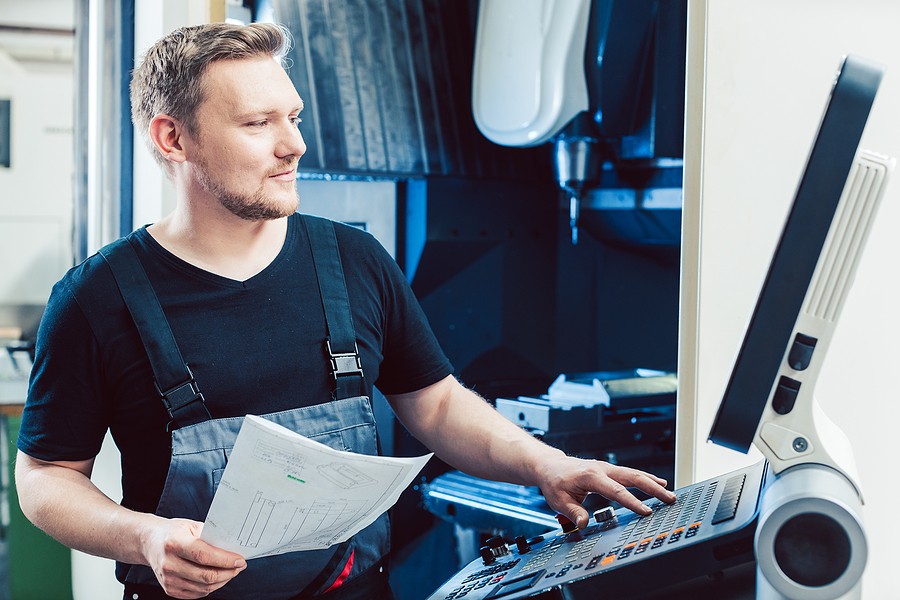Almost every manufacturing industry now employs Computer Numerical Control (CNC) machines. CNC machining benefits manufacturing in many ways, and the key to those benefits is the CNC operator.
What is CNC Machining?
CNC machining is a manufacturing process that utilizes sophisticated computer software programs and computerized controls to guide the movement of CNC machinery in the fabrication of high-precision parts from an assortment of raw materials. A CNC operator works with the software and the various machines, ensuring that the programs and machines are set up and running smoothly.
Because CNC machines are incredibly versatile, they are widely used in many industries, including oil and gas, marine, electronics, automotive, medical equipment, and aerospace.
The Benefits of CNC Machining
CNC machining offers many benefits guided by a CNC operator:
- Precision and accuracy. CNC machines produce parts with high accuracy and tight tolerances. Additionally, the computer-controlled machine movements ensure consistent and repeatable results.
- Speed and manufacturing efficiency. CNC operating processes reduce production time compared to manual processes, and that allows faster turnaround times and increased productivity.
- Reduced costs. Automated CNC production processes minimize human error, leading to less rework and reduced material waste. Labor costs are reduced since CNC machines are operated by fewer personnel.
- Enhanced safety. Workplace safety is enhanced since there is less need for manual handling of tools and parts.
- Flexibility and versatility. CNC machines can be programmed to produce a wide variety of designs and parts, and they can easily adapt to variations and design changes, even during production.
- Production run range. CNC machines are suitable for prototyping and small-scale and large-scale production runs.
What Does a CNC Machine Operator Do?
A CNC operator is a specialist who works with sophisticated CNC software and preprogrammed equipment that are used to create precise products and parts from a wide variety of materials. A CNC operator will set up, operate, and maintain a variety of CNC machines. Their role includes tracking the manufacturing of a product through each phase of its creation. They can load the software program, stock production materials, test the machines, run the production process, and inspect finished products.
A CNC operator will commonly also study blueprints, materials, and production plans before the start of machining. He/she will translate blueprints and drawings into dimensions for production. The CNC operator will set up each appropriate machine using prescribed calibration techniques and programs or enter instructions into the machine. During production, the operator will ensure the machines are operating properly. Other duties include performing light maintenance on the machines and communicating logistics issues that may arise during production.
Choose a Highly Regarded CNC Machining Company
Contact Components By Design, based in Charlotte, NC. Components By Design, Inc. has over 15 years of experience with CNC routers and CAD / CAM software and exists to help your complex projects become simple. We offer a complete range of CNC routing services. From simple parts to complicated 3D machining, we can take on any project to add value to your product. We are experienced in machining parts from panel material and solid wood, PVC extruded sheets, acrylics, aluminum, and solid surfaces. Our CNC solutions are well-suited for cabinet makers, architectural woodworkers, building suppliers, sign makers, plastic fabricators, and more. If you can think it, we can make it.
